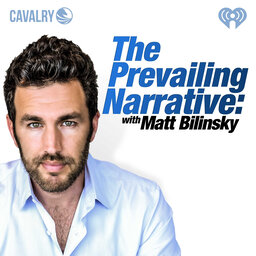Episode 25: Mike Shellenberger - CA Gubernatorial Candidate on Homelessness, Addiction, Crime, Inequality, and the California Dream in Peril
1:14 - Mass Shootings: The nation has been shaken over the past 2 weeks with 2 senseless mass murders committed by 2 disturbed and deranged young men - Payton Grendon in Buffalo, NY and Salvador Ramos in Uvalde, TX. No civilized society should have to encounter this. What can we do about them? Are we diagnosing the problem correctly? Can we gauge which solutions can or cannot work? Why is so much anger being directed at places other than the killers themselves?
39:49 - Shellenberger: Nobody has diagnosed the problems plaguing the State of California better than Mike Shellenberger. This practical and solutions-oriented approach is gaining attention. He lays it all out for us around the difficult issues that the state is encountering - homelessness, addiction, crime, inequality, and a political class seemingly non-responsive to the state's problems.
In 1 playlist(s)
The Prevailing Narrative with Matt Bilinsky
A lively and fiercely analytical breakdown of news and current events, with interviews of thought le…Follow podcast
Recent clips

Episode 30: "Dark Plots & Secret Explanations": Study Rejects "Chemical Imbalance" as Cause of Depression (Max Lugavere Discusses); Biden & His Media Surrogates Re-Define "Recession; Kansas Abortion Ruling; Zelensky Poses for Vogue(?!); Public Health Lies on Monkeypox
1:38:34

Episode 29: Kamal Ravikant - Silicon Valley Thought-Leader, Investor, & Bestselling Author on Loving Yourself, Stepping Past Fear, Extreme Sharing, Investing Skills, and Living a Life of Honesty, Adventure and Authenticity
1:12:12

Episode 28: Political Scientist Wilfred Reilly on Gun Control, Targeted Solutions, and the Facts and Myths About Gun Violence in America; Nihilism and Mass Shootings
1:44:29
 The Prevailing Narrative with Matt Bilinsky
The Prevailing Narrative with Matt Bilinsky